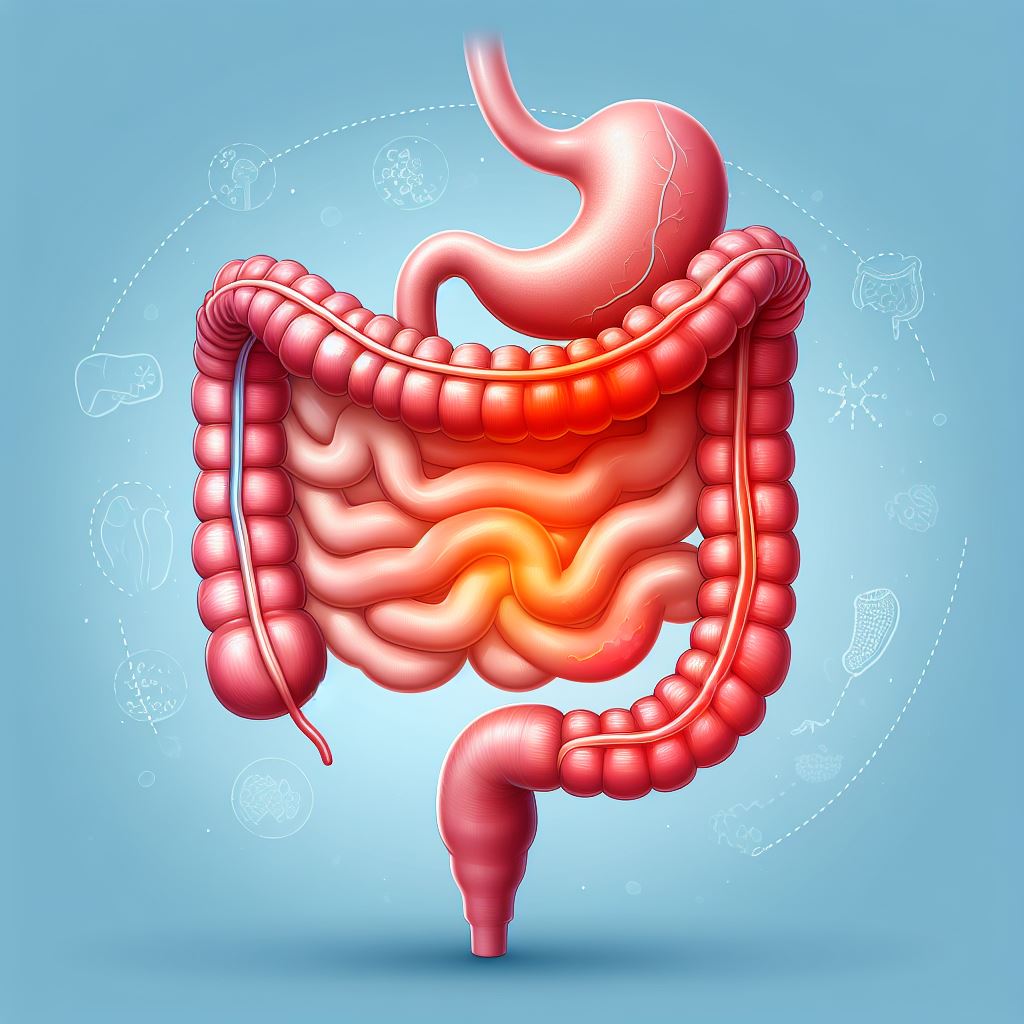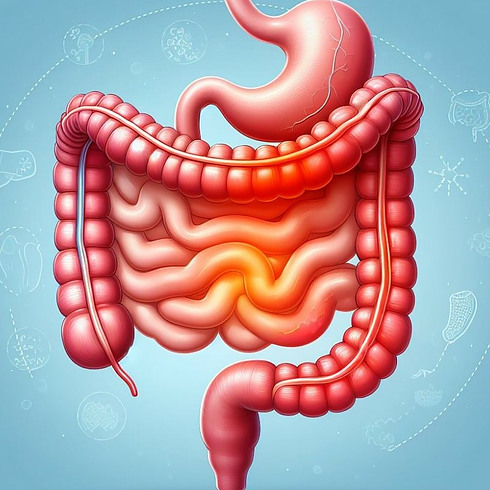
Gastritis can be a troublesome condition for many. Defined by the inflammation, irritation, or erosion of the stomach lining. It’s a term that covers a broad range of issues. All leads back to this central problem within the digestive system. In my experience explaining these concepts, clear definitions are crucial. When we talk about gastritis, we usually refer to acute or chronic forms.
Acute gastritis occurs suddenly and can be severe. While chronic gastritis might start slow and can persist for a long time. Helicobacter pylori bacteria, regular use of certain pain relievers, and heavy alcohol consumption are frequent culprits. Statistics shed light on who might be more susceptible, with the condition affecting adults of different age brackets, potentially impacting their comfort and overall health.
In the U.S., acute gastritis, which often happens due to short-term infections, alcohol, or medication use, affects about 8 out of every 1,000 people. On the other hand, chronic gastritis, affecting about 2 out of every 10,000 people in the U.S., is linked globally to a widespread bacterial infection called H. pylori, with as much as half of the world’s population experiencing it.
The digestive system is complex, and gastritis can significantly interfere with its normal operation. Leading to discomfort and sometimes more serious health complications if left unchecked.
It is also imperative to address common myths at this stage. For instance, some might believe that spicy food alone causes gastritis, but it’s often more complicated. Involves a combination of dietary habits, lifestyle, and medical history.
Recognizing the Symptoms: When to Seek Help

If you’ve been dealing with persistent stomach discomfort, you might be experiencing gastritis symptoms. It’s a condition I understand can feel uncomfortable at best and excruciating at times. Sharp stomach pains, nausea, vomiting, and a feeling of fullness in the upper abdomen after eating. These symptoms are tell-tell signs that your body shouldn’t ignore. And if you’re noticing blood in your vomit or having tarry, black stools, it’s not just a matter of discomfort anymore. It’s a sign to seek medical attention IMMEDIATELY.
Think of your gut as an alarm system. When everything runs smoothly, you barely notice it’s there. But if something’s wrong, it won’t hesitate to send signals. Bloating, indigestion, and a burning sensation might seem routine. Yet if they persist, they tell you something important about your health. Don’t wait for symptoms to escalate. Approach your healthcare provider with an honest account of what you’re experiencing. A clear, precise description of your symptoms can be the difference between early intervention and a drawn-out struggle with recovery.
They might suggest tests such as endoscopy or blood work to understand your condition better. Removing the idea that enduring pain is a show of strength is critical. Delayed treatment of gastritis can lead to serious complications like ulcers. In some cases, increases the risk of gastric cancer. Especially if you have a family history of digestive issues, it’s wise to act sooner rather than later.
Personal habits can also contribute to the severity of gastritis symptoms. Acknowledging the impact of stress, smoking, and alcohol use is a strategic move. Adjusting these habits can significantly soothe your symptoms and improve your quality of life. This leads to the next topic of our conversation: how to prevent gastritis by transforming your daily routines.
Comprehensive Prevention Strategies for Gastritis
You might think that preventing gastritis is out of your hands, but you have more control than you realize. Your everyday choices play an important role in maintaining a healthy stomach lining. This will prevent you from the irritation that leads to gastritis. One of the best starting points is examining what you eat. A balanced diet with a variety of fruits, vegetables, whole grains, and lean proteins can support stomach health.
It’s also wise to limit foods that aggravate the stomach, such as spicy dishes, acidic foods, and fried delicacies. Stress is not just in your head; it can manifest in your stomach, too. Developing stress-management routines like regular exercise, meditation, or engaging in hobbies you love can reduce the risk of developing stress-induced gastritis. If you know that you’re at risk for gastritis due to factors like a family history of digestive issues or past stomach problems, make sure you have regular medical check-ups.
Catching changes early can be key to prevention. Certain medications, like non-steroidal anti-inflammatory drugs (NSAIDs), can contribute to gastritis. Use them only as necessary and as prescribed by your doctor. Additionally, stopping alcohol and quitting smoking, as both habits can exacerbate gastric irritation.
Effective Management and Treatment Options
When gastritis does make itself known, REST ASSURED that various treatment options are available.
Conventional medical treatments
It often begins with ANTACIDS OR PROTON PUMP INHIBITORS to neutralize stomach acid and promote healing. These might help in the short term, but if used for a long time, they can worsen things or even have negative effects. For instance, they may inhibit the absorption of vitamin B12. It can also reduce the diversity of the gut microbiome, making non-friendly microbes such as C. difficile flourish and causing infection.
Antibiotics for Bacterial infection
If a bacterial infection, such as Helicobacter pylori (H. pylori), is the culprit as a cause of gastritis. ANTIBIOTICS play a crucial role in treatment. Targeting the bacterial source can contribute to resolving inflammation and promoting recovery. I have talked about H. pylori extensively in another article.
Lifestyle modifications

Dietary Changes: Emphasize a balanced diet rich in fruits, vegetables, whole grains, and lean proteins. It also recommends limiting or avoiding foods that aggravate the stomach, such as spicy and acidic dishes.
Stress Management: This Recognizes the impact of stress on stomach health and advocates for stress-management routines. Regular exercise, meditation, and engaging in enjoyable hobbies reduce the risk of stress-induced gastritis.
Alternative Medicine Practices: Alternative medicine practices such as ACUPUNCTURE or HERBAL SUPPLEMENTS might be worth exploring in consultation with your healthcare provider. These might complement conventional treatments.
Here are some of the herbal supplements that may help with gastritis
- Astragalus: This is a plant that may have anti-inflammatory and immune-boosting properties.
- Barberry: This is a shrub that may have antibacterial and anti-inflammatory effects. It may help fight H. pylori
- Licorice: This is a root that may have anti-ulcer and anti-inflammatory properties.
- Omega-3 fatty acids: These are essential fats that may have anti-inflammatory effects. They assist in the reduction of pain in the stomach and protect the stomach lining.
- Slippery elm: This tree may have soothing and healing properties. It helps coat the stomach lining and reduce inflammation.
- Turmeric: This is a spice that may have anti-inflammatory and antioxidant properties. It minimizes inflammation and prevents stomach ulcers.
Each individual may need a tailored approach based on their specific symptoms, medical history, and underlying causes of gastritis. This collaborative effort ensures the best long-term outcome and minimizes the risk of complications.
References
- https://my.clevelandclinic.org/health/diseases/10349-gastritis
- https://www.health.harvard.edu/blog/proton-pump-inhibitors-should-i-still-be-taking-this-medication-202209062809
- Gastritis Information | Mount Sinai – New York
- https://www.medicalnewstoday.com/articles/321138#reduce-stress


This article about preventing and managing gastritis I found it extremely helpful. It was enlightening to learn about the different types of gastritis and the importance of diet and stress management in prevention. The mix of conventional and alternative treatments, including herbal supplements, provided a well-rounded perspective. Overall, the article was concise, informative, and offered practical advice in an easily digestible format.
Hi Razvan
Thank you for your positive feedback! I’m glad you found the article helpful and informative. If you have any more questions or topics you’d like to see covered, feel free to let me know. Appreciate your support
Gut issues are not fun and you hit the nail on the head when you said that you only notice it when it gives you trouble.
You have given some remedies that I have not thought of trying before like turmeric, barberry and slippery elm. Would you only get these at a health shop I wonder? I might be good to keep these in the house as you never know when someone in the family is going to have issues, as these things pop up so suddenly.
Hi Michel,
Thank you for your comment! I’m glad you found the remedies helpful. You can typically find turmeric, barberry, and slippery elm at health food stores, specialty herb shops, or even some well-stocked supermarkets. It’s always a good idea to have these natural remedies on hand for unexpected situations. Make sure to check with your local health store, and you can also explore online options for convenience. Wishing you and your family good health
Hi Zahra
What are your thoughts on probiotics? My daughter has scoliosis surgery and had a subsequent infection which required a years’ worth of anti-biotic treatments. I knew that would destroy her gut biome and I needed to do something about. it. We gave her yogurt every day until we found out she can’t really digest cow milk/dairy. The doctor recommended a high-quality probiotic, and we noticed her skin cleared up and she began to lose weight. I wonder if you or your readers had similar experiences.
regards
Bernard
Hi Zahra
What are your thoughts on probiotics? My daughter has scoliosis surgery and had a subsequent infection which required a years’ worth of anti-biotic treatments. I knew that would destroy her gut biome and I needed to do something about. it. We gave her yogurt every day until we found out she can’t really digest cow milk/dairy. The doctor recommended a high-quality probiotic, and we noticed her skin cleared up and she began to lose weight. I wonder if you or your readers had similar experiences.
regards
Bernard
Hello Bernard,
Thank you for sharing your experience and concerns. I’m sorry to hear about your daughter’s struggles and the challenges she faced after scoliosis surgery.
It’s not uncommon for prolonged antibiotic treatments to affect the gut biome, and it’s commendable that you took proactive steps to address this issue. Your decision to give her yogurt and later switch to a high-quality probiotic aligns with current understanding of the importance of maintaining a healthy gut microbiome.
Interestingly, you observed positive changes in her skin and weight after incorporating probiotics into her routine. Each person’s response to probiotics can be unique, and it’s heartening to know that it made a positive difference for your daughter.
As far as my thoughts on probiotics I recently wrote a blog post on prebiotics and probiotics. Check it out for a more detailed look at this topic. Let me know what you think.
Zahra
Thanks for the kind words and the content you provide is very helpful
best
Bernard
Hey Zahra,
Thank you very much for this very insightful article.
I’ve been having a digestion issue for a number of years now, but I’m not sure if it classifies as gastritis, so I’d like to know your input on this.
It usually happens after my first meal of the day: I get immense discomfort and an immediate need to use the bathroom.
I did seek medical help, and the doctor recommended I stay away from spicy food and fried food. In all honestly, I didn’t stick to his recommendations, but in general, I’m happy to say that things are much better now.
I’ve been told that the issue I’m having is Irritable Bowel Syndrome, but Gastroenterology is a complex field, so it may be the case that different conditions are interrelated and can sometimes intertwine together.
Hello Yusuf,
Thank you for sharing your journey with digestive issues. It’s positive to hear that you’ve found some relief by adjusting your diet, but as you rightly pointed out, gastroenterology is intricate, and conditions may interconnect.
While discussing your symptoms with a doctor is crucial, you might also consider exploring alternative approaches such as naturopathy or holistic health. Some individuals find complementary therapies helpful in managing gastrointestinal concerns. However, it’s vital to communicate openly with all healthcare providers involved and ensure they are aware of any alternative methods you’re considering.
Remember, the key is to collaborate with professionals who can offer a comprehensive and holistic perspective on your health. Integrating different approaches under the guidance of qualified practitioners may provide a more well-rounded strategy for managing your condition.
Wishing you continued well-being on your health journey.